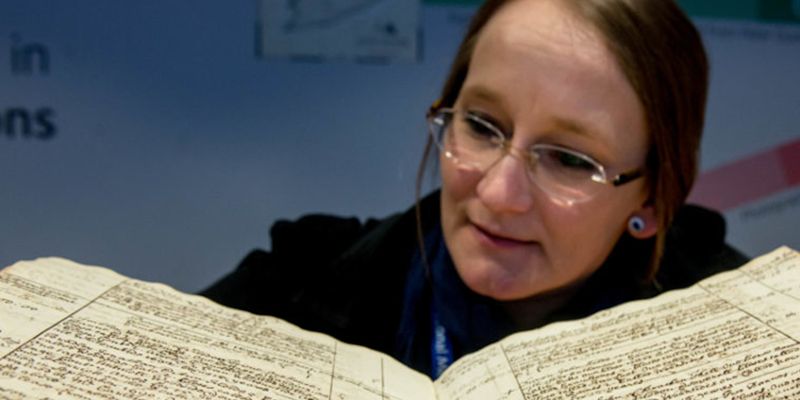
The International Medieval Congress (IMC) – the biggest academic event of its kind in Europe – starts today. And for the first time it will be entirely online.
The five-day annual event, organised and administered by the Institute of Medieval Studies at the University of Leeds, will host 500 speakers from 60 countries and 3,200 online attendees, with all sessions and fringe events accessed virtually.
The extensive selection of online fringe activities will range from a pub quiz to a Cyrillic calligraphy session and online film tours, as well as manuscript workshops, virtual banquets and storytelling events.
There will even be a virtual disco, hosted by local community internet radio station South Leeds Radio, with the playlist available for delegates around the world to enjoy.
“Faced with a pandemic that has grounded our global community of medievalists, they have risen to the challenge and are willing to embrace platforms to engage in ground-breaking discussions and research exchanges.”
Axel Müller, IMC Director said: “The discipline of medieval studies has often led the way in adopting technology, for example by harnessing computers to digitise manuscripts.
“Dealing with changing circumstances was second nature in the Middle Ages, too.
“Faced with a pandemic that has grounded our global community of medievalists, they have risen to the challenge and are willing to embrace platforms to engage in ground-breaking discussions and research exchanges.
“It will not be the same as the in-person congress, but it will still be a stimulating and thought-provoking international event of benefit to researchers worldwide.”
The event is aimed both as a way of bringing the medievalist community together and providing a platform for medieval studies research to persist, despite the challenges posed by COVID-19.
It also gives those who might never have been able to attend the congress a chance to get involved – something the team hopes to build on in future years.
Working from home, and without access to their usual programming tools, University organisers have had to invent systems and procedures to make the online event a reality.
While the virtual IMC may have required some structural changes compared to the in-person iteration of previous years, it also presents an opportunity to find out if the various systems being put to use are able to deliver a good quality event which is rewarding and beneficial to medievalists across the world.
Visit the IMC website to find out more about this year’s event – including a full programme.
Registration for delegates is now closed.
For further information, please contact University of Leeds press officer Prue Griffiths via p.griffiths@leeds.ac.uk.